Quotes & Sayings About Critical Thinking Skills
Enjoy reading and share 26 famous quotes about Critical Thinking Skills with everyone.
Top Critical Thinking Skills Quotes
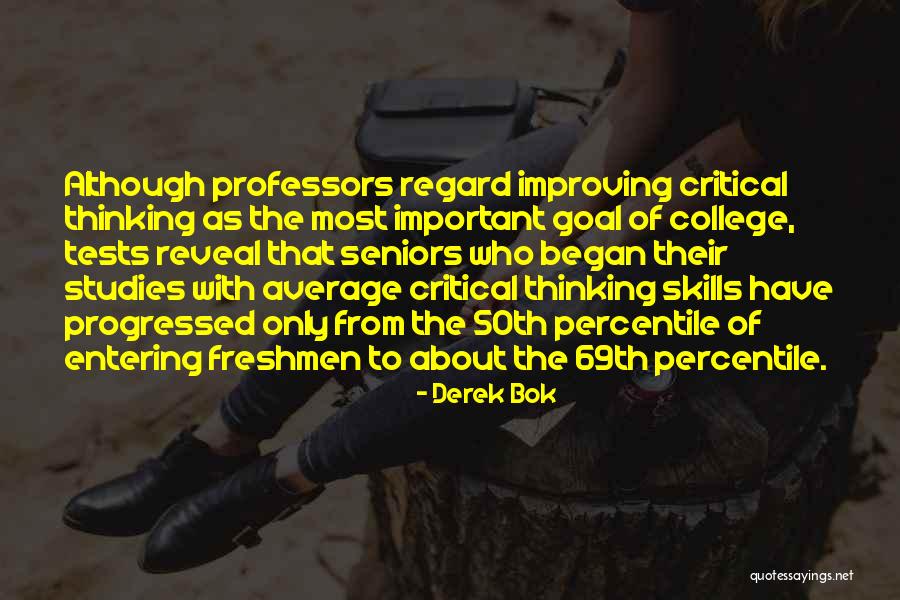
Although professors regard improving critical thinking as the most important goal of college, tests reveal that seniors who began their studies with average critical thinking skills have progressed only from the 50th percentile of entering freshmen to about the 69th percentile. — Derek Bok
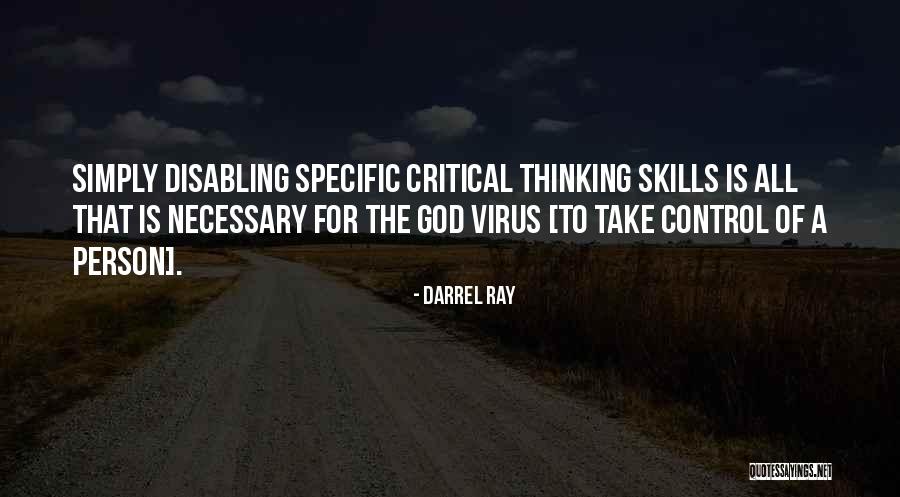
Simply disabling specific critical thinking skills is all that is necessary for the god virus [to take control of a person]. — Darrel Ray
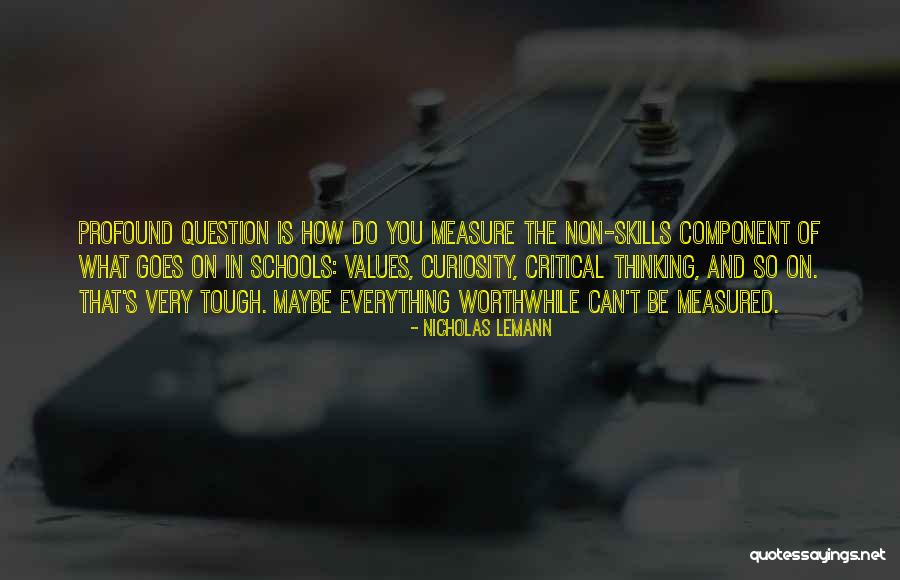
Profound question is how do you measure the non-skills component of what goes on in schools: values, curiosity, critical thinking, and so on. That's very tough. Maybe everything worthwhile can't be measured. — Nicholas Lemann
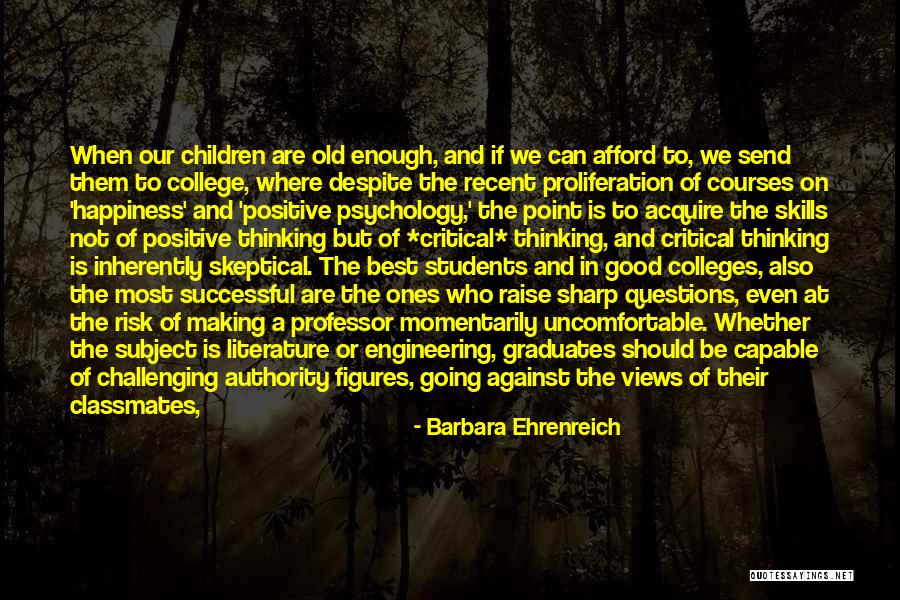
When our children are old enough, and if we can afford to, we send them to college, where despite the recent proliferation of courses on 'happiness' and 'positive psychology,' the point is to acquire the skills not of positive thinking but of *critical* thinking, and critical thinking is inherently skeptical. The best students
and in good colleges, also the most successful
are the ones who raise sharp questions, even at the risk of making a professor momentarily uncomfortable. Whether the subject is literature or engineering, graduates should be capable of challenging authority figures, going against the views of their classmates, and defending novel points of view. — Barbara Ehrenreich
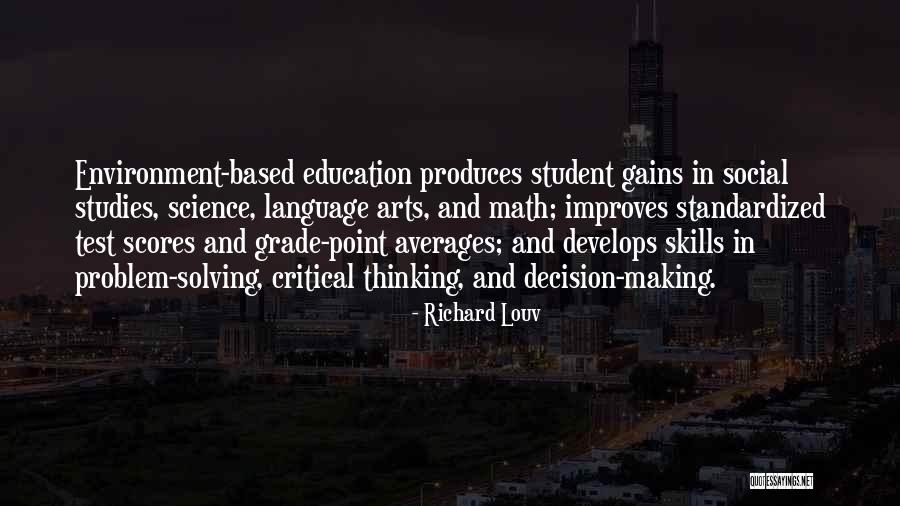
Environment-based education produces student gains in social studies, science, language arts, and math; improves standardized test scores and grade-point averages; and develops skills in problem-solving, critical thinking, and decision-making. — Richard Louv
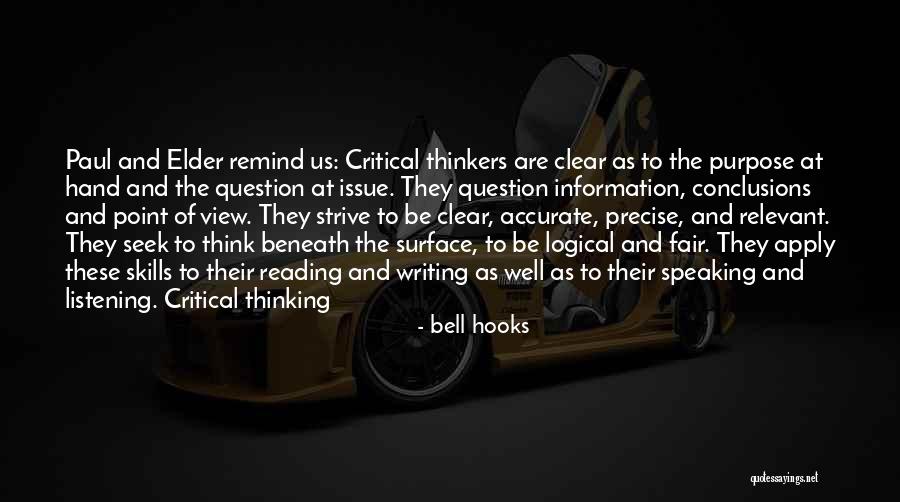
Paul and Elder remind us: Critical thinkers are clear as to the purpose at hand and the question at issue. They question information, conclusions and point of view. They strive to be clear, accurate, precise, and relevant. They seek to think beneath the surface, to be logical and fair. They apply these skills to their reading and writing as well as to their speaking and listening. Critical thinking — Bell Hooks
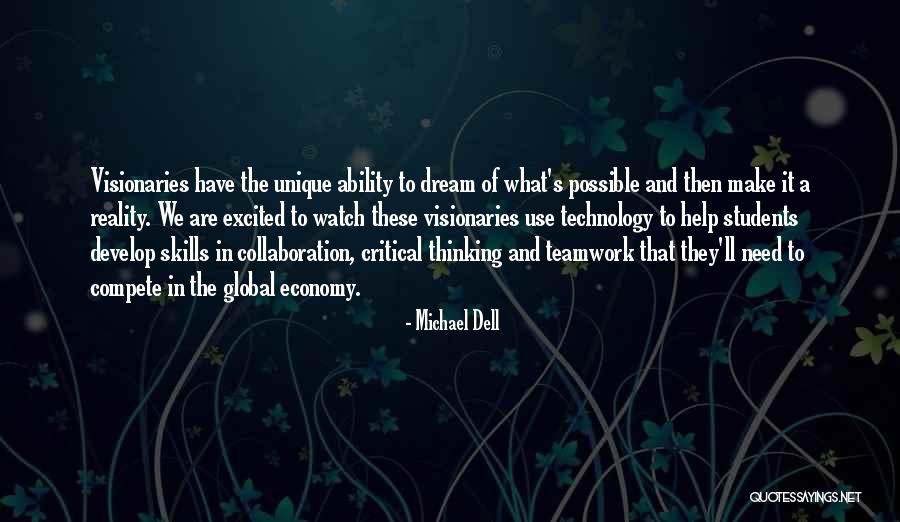
Visionaries have the unique ability to dream of what's possible and then make it a reality. We are excited to watch these visionaries use technology to help students develop skills in collaboration, critical thinking and teamwork that they'll need to compete in the global economy. — Michael Dell

Resource-poor schools in low-income neighborhoods often leave children with subpar language and critical-thinking skills. Those deficits will remain even if those children relocate to safe and prosperous neighborhoods later in life. To think of those school-conditioned speech patterns and belief systems as evidence of a "culture of poverty," the invention of poor families themselves, is to overlook the influence of broken cultural institutions through which low-income families pass. We — Matthew Desmond
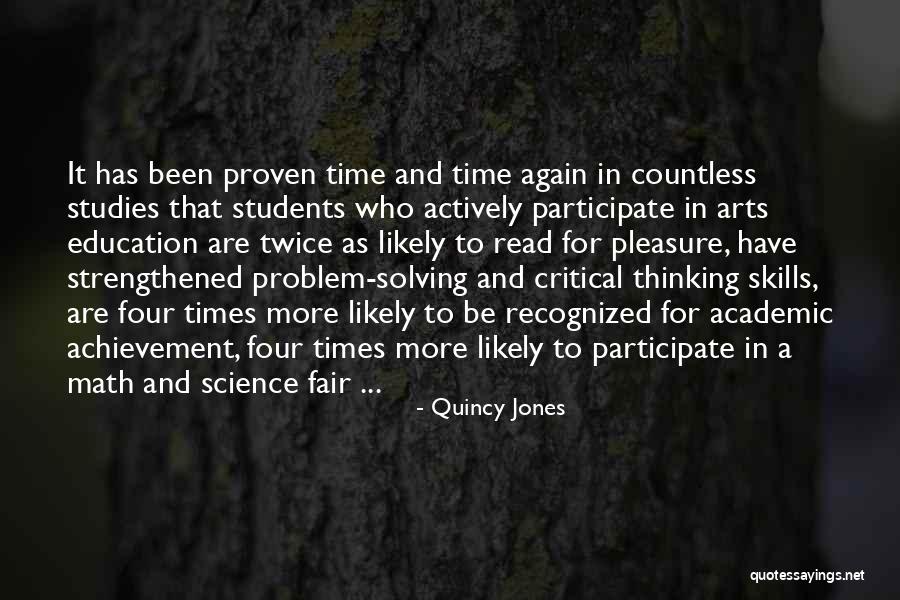
It has been proven time and time again in countless studies that students who actively participate in arts education are twice as likely to read for pleasure, have strengthened problem-solving and critical thinking skills, are four times more likely to be recognized for academic achievement, four times more likely to participate in a math and science fair ... — Quincy Jones
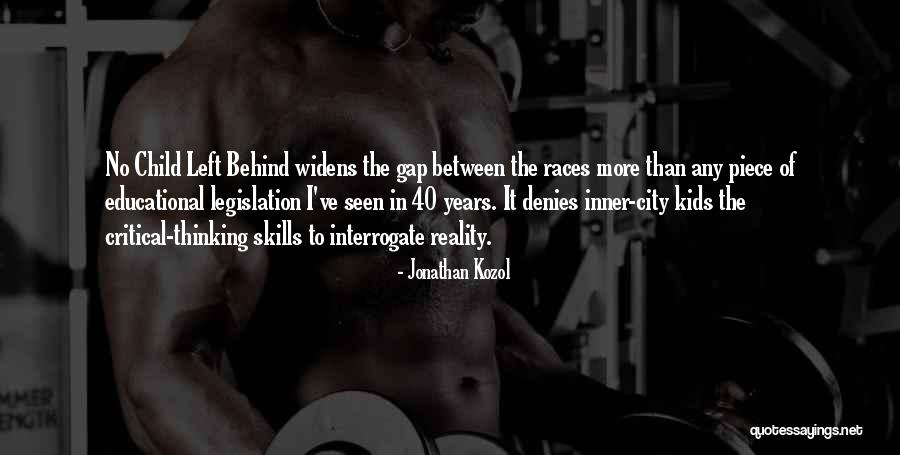
No Child Left Behind widens the gap between the races more than any piece of educational legislation I've seen in 40 years. It denies inner-city kids the critical-thinking skills to interrogate reality. — Jonathan Kozol
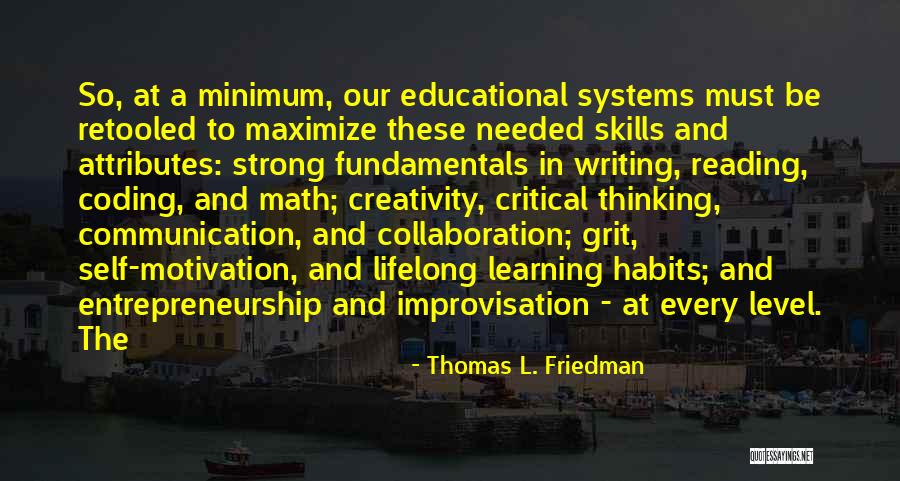
So, at a minimum, our educational systems must be retooled to maximize these needed skills and attributes: strong fundamentals in writing, reading, coding, and math; creativity, critical thinking, communication, and collaboration; grit, self-motivation, and lifelong learning habits; and entrepreneurship and improvisation - at every level. The — Thomas L. Friedman
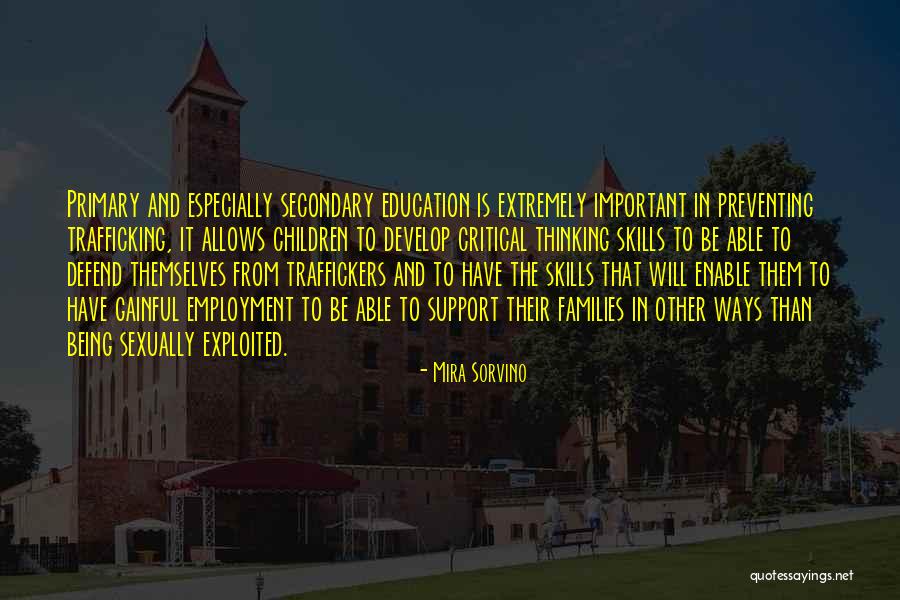
Primary and especially secondary education is extremely important in preventing trafficking, it allows children to develop critical thinking skills to be able to defend themselves from traffickers and to have the skills that will enable them to have gainful employment to be able to support their families in other ways than being sexually exploited. — Mira Sorvino
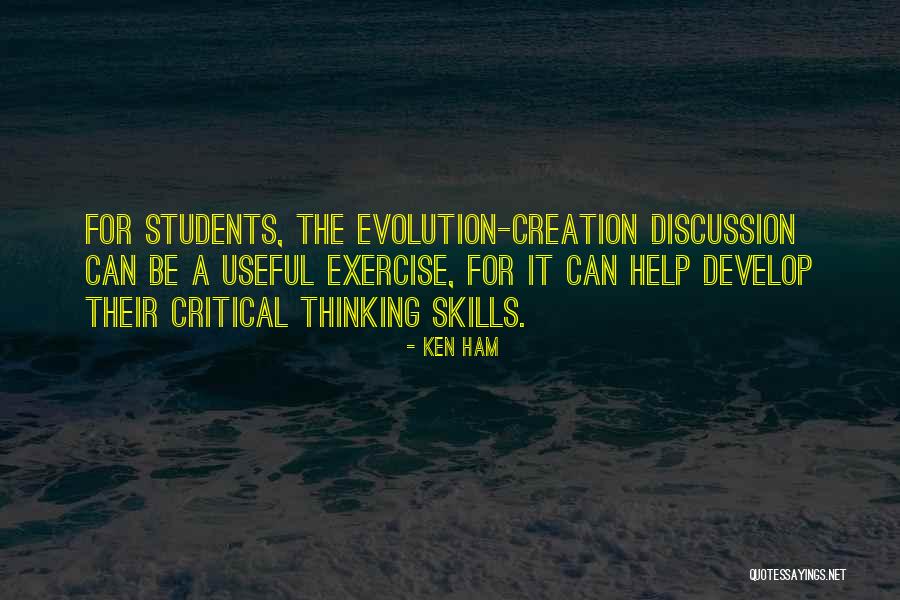
For students, the evolution-creation discussion can be a useful exercise, for it can help develop their critical thinking skills. — Ken Ham
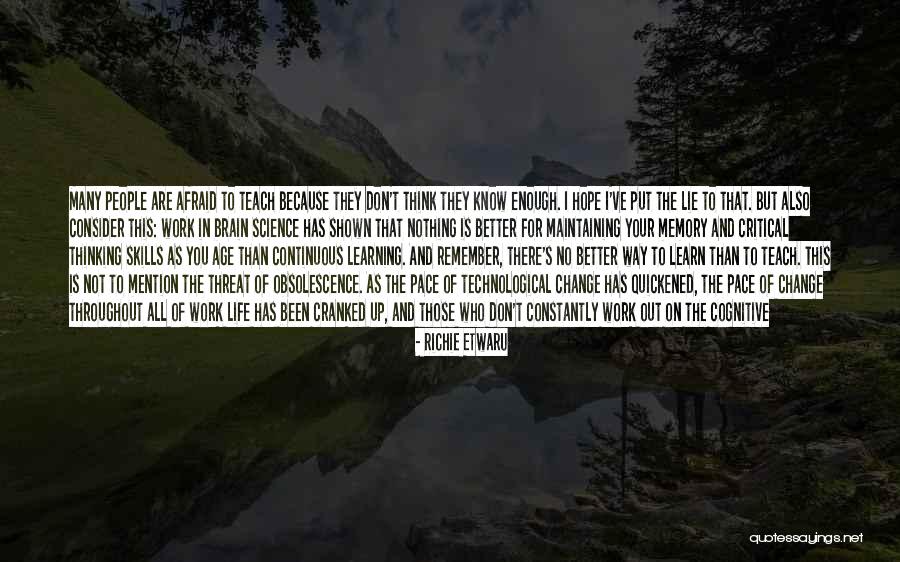
Many people are afraid to teach because they don't think they know enough. I hope I've put the lie to that. But also consider this: work in brain science has shown that nothing is better for maintaining your memory and critical thinking skills as you age than continuous learning. And remember, there's no better way to learn than to teach. This is not to mention the threat of obsolescence. As the pace of technological change has quickened, the pace of change throughout all of work life has been cranked up, and those who don't constantly work out on the cognitive treadmill find themselves lapped by the new young things right out of college. Finally, — Richie Etwaru
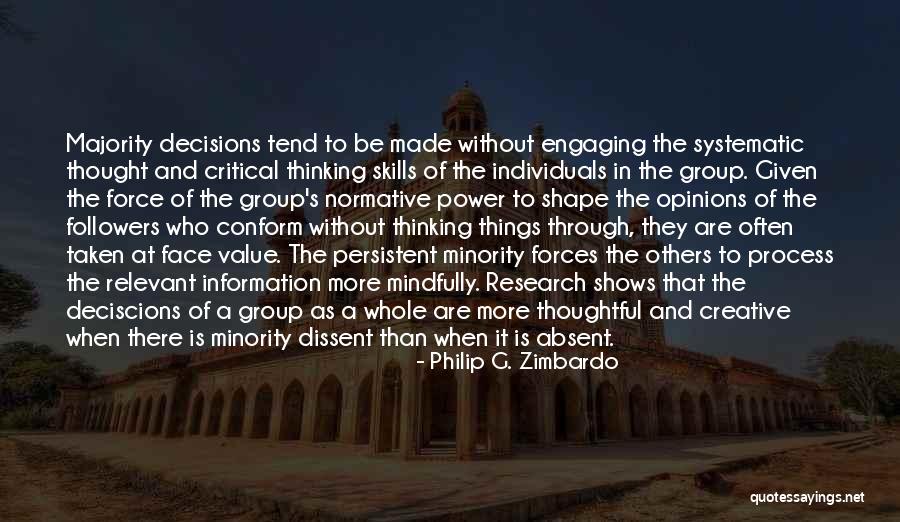
Majority decisions tend to be made without engaging the systematic thought and critical thinking skills of the individuals in the group. Given the force of the group's normative power to shape the opinions of the followers who conform without thinking things through, they are often taken at face value. The persistent minority forces the others to process the relevant information more mindfully. Research shows that the deciscions of a group as a whole are more thoughtful and creative when there is minority dissent than when it is absent. — Philip G. Zimbardo
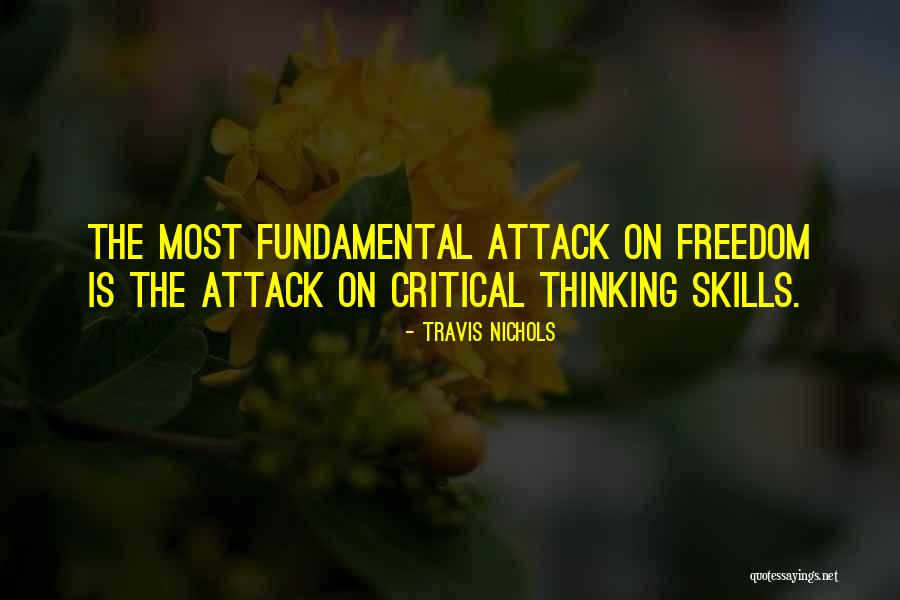
The most fundamental attack on freedom is the attack on critical thinking skills. — Travis Nichols
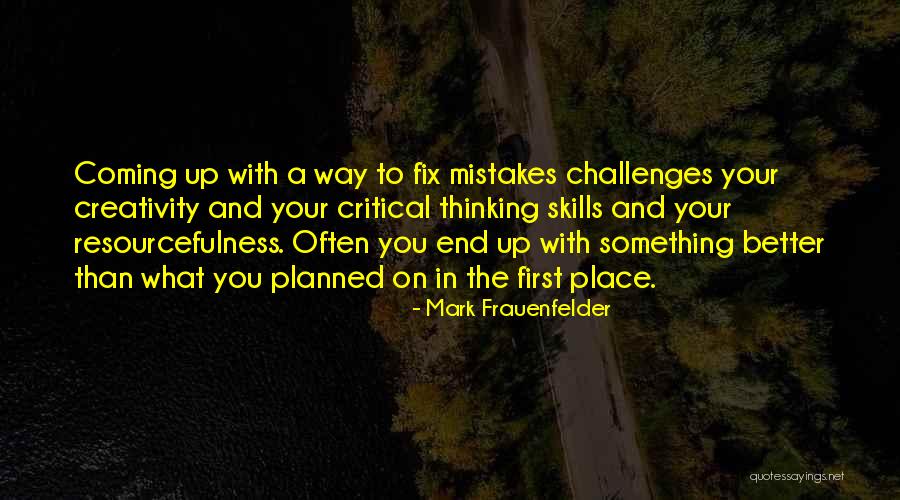
Coming up with a way to fix mistakes challenges your creativity and your critical thinking skills and your resourcefulness. Often you end up with something better than what you planned on in the first place. — Mark Frauenfelder
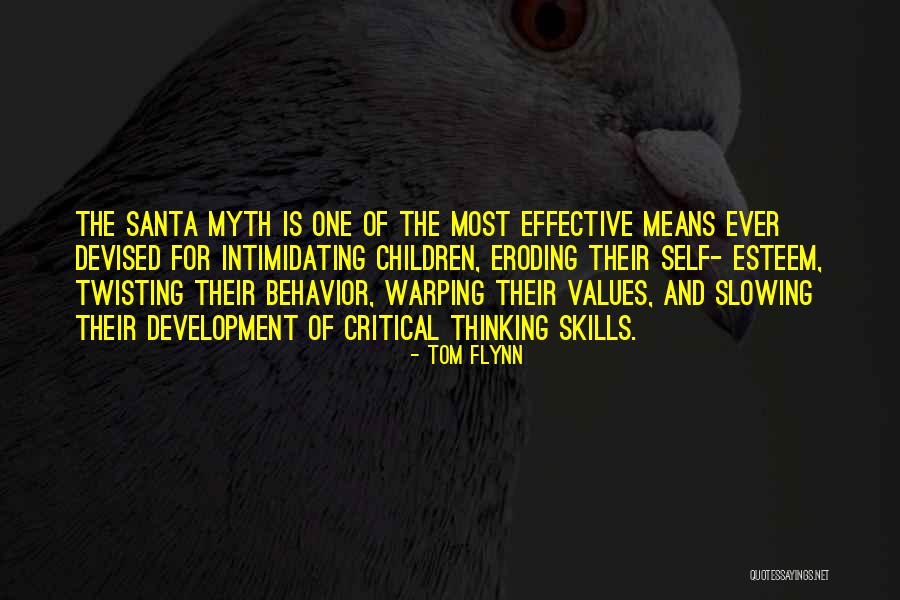
The Santa myth is one of the most effective means ever devised for intimidating children, eroding their self- esteem, twisting their behavior, warping their values, and slowing their development of critical thinking skills. — Tom Flynn
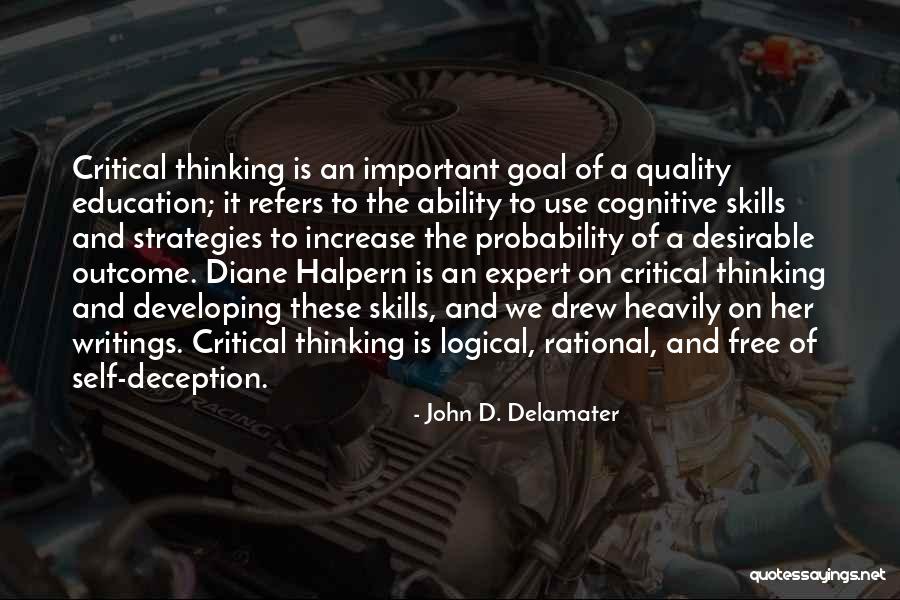
Critical thinking is an important goal of a quality education; it refers to the ability to use cognitive skills and strategies to increase the probability of a desirable outcome. Diane Halpern is an expert on critical thinking and developing these skills, and we drew heavily on her writings. Critical thinking is logical, rational, and free of self-deception. — John D. Delamater
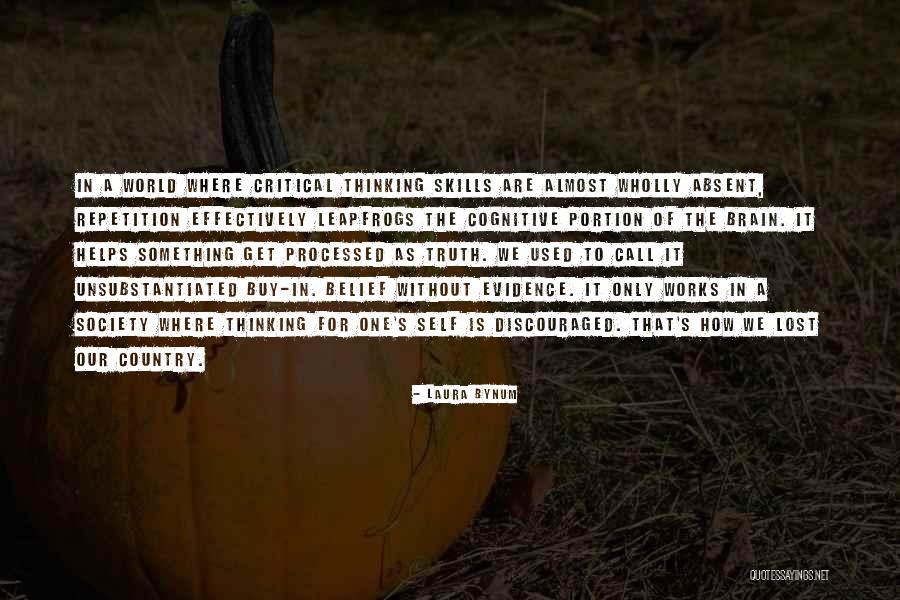
In a world where critical thinking skills are almost wholly absent, repetition effectively leapfrogs the cognitive portion of the brain. It helps something get processed as truth. We used to call it unsubstantiated buy-in. Belief without evidence. It only works in a society where thinking for one's self is discouraged. That's how we lost our country. — Laura Bynum
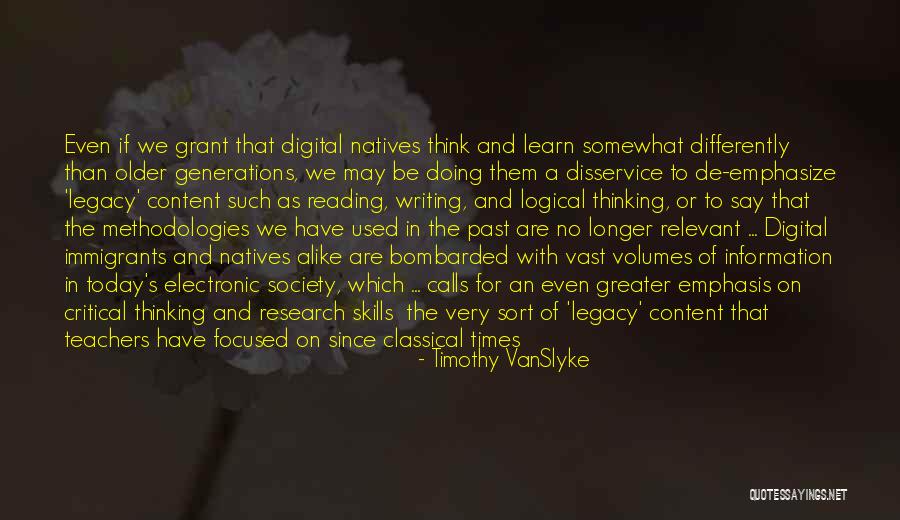
Even if we grant that digital natives think and learn somewhat differently than older generations, we may be doing them a disservice to de-emphasize 'legacy' content such as reading, writing, and logical thinking, or to say that the methodologies we have used in the past are no longer relevant ... Digital immigrants and natives alike are bombarded with vast volumes of information in today's electronic society, which ... calls for an even greater emphasis on critical thinking and research skills
the very sort of 'legacy' content that teachers have focused on since classical times — Timothy VanSlyke
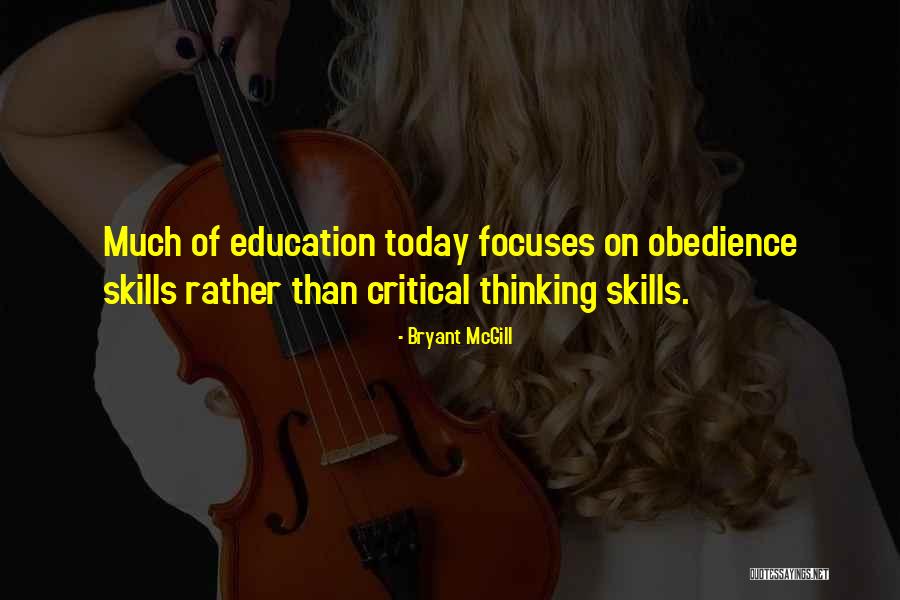
Much of education today focuses on obedience skills rather than critical thinking skills. — Bryant McGill
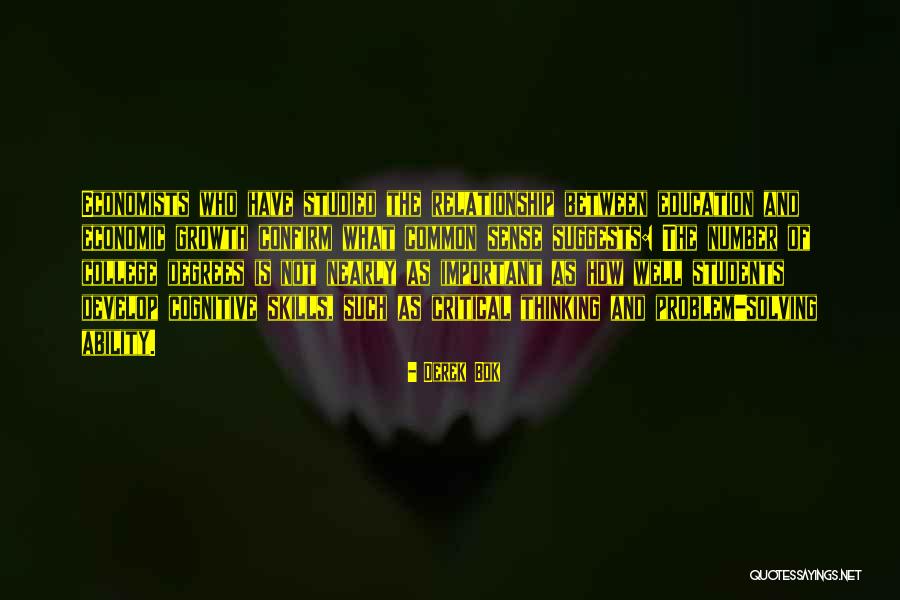
Economists who have studied the relationship between education and economic growth confirm what common sense suggests: The number of college degrees is not nearly as important as how well students develop cognitive skills, such as critical thinking and problem-solving ability. — Derek Bok
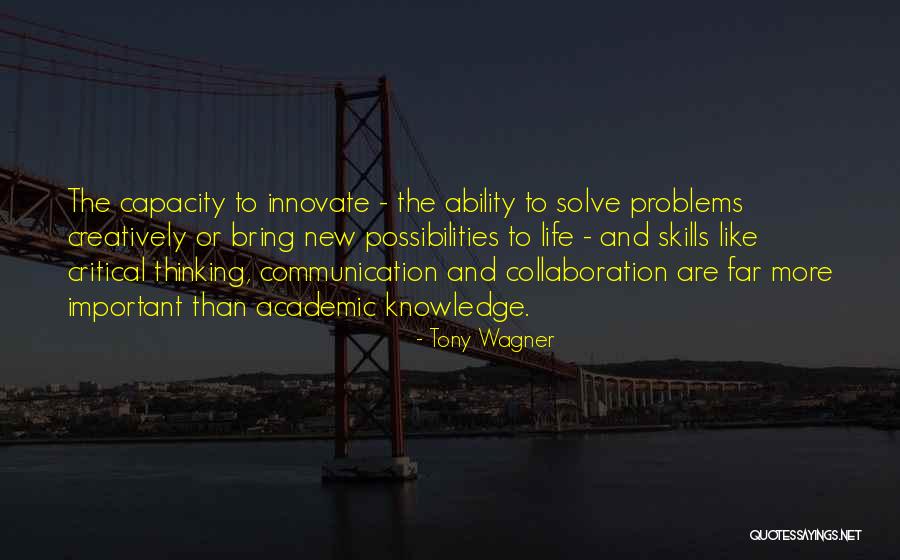
The capacity to innovate - the ability to solve problems creatively or bring new possibilities to life - and skills like critical thinking, communication and collaboration are far more important than academic knowledge. — Tony Wagner
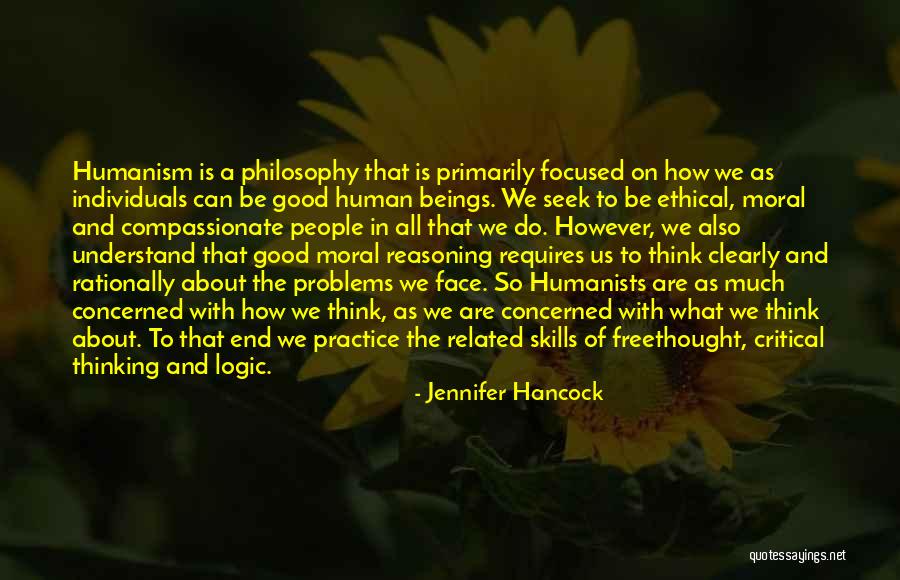
Humanism is a philosophy that is primarily focused on how we as individuals can be good human beings. We seek to be ethical, moral and compassionate people in all that we do. However, we also understand that good moral reasoning requires us to think clearly and rationally about the problems we face. So Humanists are as much concerned with how we think, as we are concerned with what we think about. To that end we practice the related skills of freethought, critical thinking and logic. — Jennifer Hancock
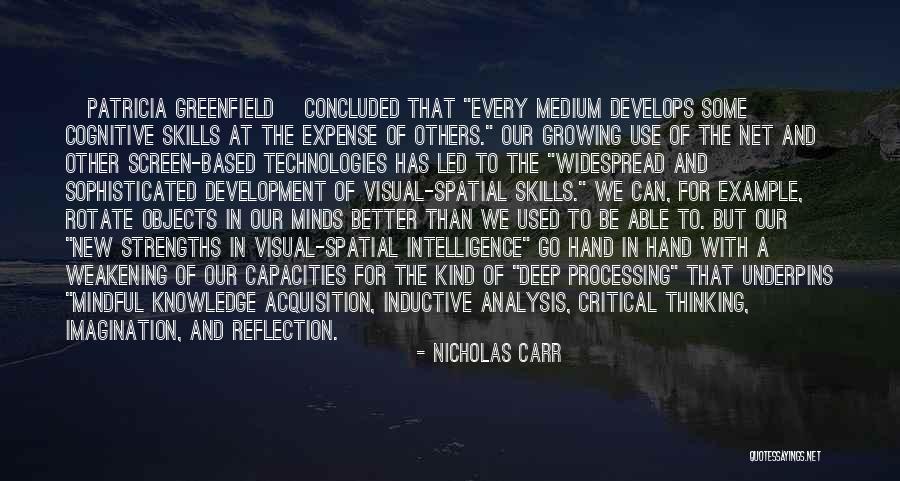
[Patricia Greenfield] concluded that "every medium develops some cognitive skills at the expense of others." Our growing use of the Net and other screen-based technologies has led to the "widespread and sophisticated development of visual-spatial skills." We can, for example, rotate objects in our minds better than we used to be able to. But our "new strengths in visual-spatial intelligence" go hand in hand with a weakening of our capacities for the kind of "deep processing" that underpins "mindful knowledge acquisition, inductive analysis, critical thinking, imagination, and reflection. — Nicholas Carr





